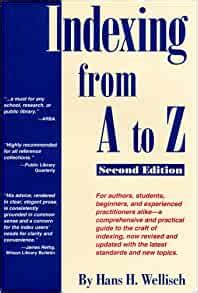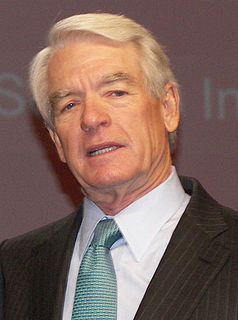A Quote by Hans H Wellisch
The indexing problem changes with each new book undertaken. To meet the needs of different classes of seekers and to suit various types of books, rules entirely satisfactory in one case must be varied in the next and perhaps ignored or even reversed for a third... Indexing is a highly complex intellectual process involving the use of language in a specific and somewhat artificial way, and that it is also to a considerable extent a matter of intuition, the workings of which cannot be reduced to fixed rules. It is 'knowing what but not knowing how'.
Quote Topics
Also
Artificial
Book
Books
Cannot
Case
Changes
Classes
Complex
Considerable
Different
Each
Entirely
Even
Extent
Fixed
Highly
How
Ignored
Indexing
Intellectual
Intuition
Involving
Knowing
Language
Matter
Meet
Must
Needs
New
New Book
Next
Not Knowing
Perhaps
Problem
Process
Reduced
Reversed
Rules
Satisfactory
Seekers
Somewhat
Specific
Suit
Third
Types
Use
Use Of Language
Varied
Various
Way
Which
Related Quotes
In the Small group the individual can know the effects of his actions on his several fellows, and the rules may effectively forbid him to harm them in any manner and even require him to assist them in specific ways. In the Great Society many of the effects of a person's actions on various fellows must be unknown to him. It can, therefore, not be the specific effects in the particular case, but only rules which define kinds of actions prohibited or required, which must serve as guides to the individual.
There are three distinct kind of judges upon all new authors or productions; the first are those who know no rules, but pronounce entirely from their natural taste and feelings; the second are those who know and judge by rules; and the third are those who know, but are above the rules. These last are those you should wish to satisfy. Next to them rate the natural judges; but ever despise those opinions that are formed by the rules.
Artificial intelligence uses a complex set of rules - algorithms - to get to a conclusion. A computer has to calculate its way through all those rules, and that takes a lot of processing. So AI works best when a small computer is using it on a small problem - your car's anti-lock brakes are based on AI. Or you need to use a giant computer on a big problem - like IBM using a room-size machine to compete against humans on Jeopardy in 2011.
Take Einstein; wasn't he looking for something stable and changeless in this enormous, constantly changing melting pot that is the universe? He sought fixed rules. Today, instead, it would be helpful to find all those rules that show how and why the universe is not fixed - how this dynamism develops and acts. Then maybe we will be able to explain many things, perhaps even art, because the old instruments of judgment, the old aesthetics, are no longer of any use to us - so much so that we no longer know what's beautiful and what isn't.
I believe that we must use language. If it is used in a feminist perspective, with a feminist sensibility, language will find itself changed in a feminist manner. It will nonetheless be the language. You can't not use this universal instrument; you can't create an artificial language, in my opinion. But naturally, each writer must use it in his/her own way.

































